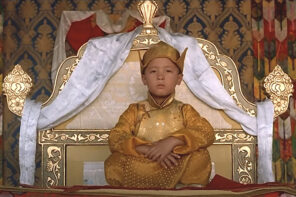I recently had the privilege of going to see a conversation about (religious) kinship, where the key speaker was the Dalai Lama. The event was hosted in the Cathedral of St. John the Divine, the largest Episcopal cathedral in the nation, with a Buddhist as the keynote and a two Muslims, Dr. Eboo Patel of the Interfaith Youth Core and Dr. Sakena Yacoobi of the Afghan Institute of Learning, joining in the conversation — which was chaired by The Very Rev. Dr. James A. Kowalski. This setting was an odd one, and triggered some reflection on the nature of interfaith relations in America.
The Dalai Lama’s remarks were very similar to an op-ed that he wrote for the New York Times several days later. He spoke of compassion as a great uniter for people of all faiths and no faith. It was an interesting juxtaposition, to see perhaps the best-loved man in the world on stage with two people who come from the most reviled religion in America. He was walking the talk of compassion. He clearly knew from his own experience that Muslims are not evil by definition. In fact, I recall Patel once saying that he played basketball with the Dalai Lama as he was trying to make his vision of the IFYC a reality. Patel leveraged the human experience by emphasizing his vision of a politically, socially, ethically, morally engaged youth. Emphasizing the IFYC’s raison d’être, it is incumbent for us to give youth a positive vision of the world that they can engage with; the option is a nihilistic vision that only leads to destruction. Yakoobi’s story is no less human and amazing. Working in Afghanistan, four armed men entered her offices. Dressed as fighters, she feared the worst. She asked them what they wanted, and they said they wanted an education for their daughters. This simple story reminded the audience that compassion entails being open to our common humanity.
This point of commonality is one the Dalai Lama returned to, and the way he constructed kinship. He sees differences in religions, and he does not wish to efface them, but rather learn from them and enrich his own faith. I think this component is what is missing in normal conversations about religion. Those in interfaith work have no problem seeing a Buddhist leader, in an Episcopal church, speaking to two Muslims. However, most of our popular discourse is based around competing gods. Religion is seen as a zero-sum, competitive space in popular discussion. Any conversation must be with the intent to convert, rather than a chance to learn or to teach. We assume every conversation will be theological (“explain the Nicene Creed,” “what is tikkun olam,” “do you practice jihad”), rather than human. What the Dalai Lama seemed to be doing is focusing on the human, on the quality of compassion we all possess, and he had on stage two Muslims who exhibit that quality, reminding us of that shared connection.
Disclosure: Eboo Patel and I have been friends for several years, and IFYC supplied my ticket to this event.




